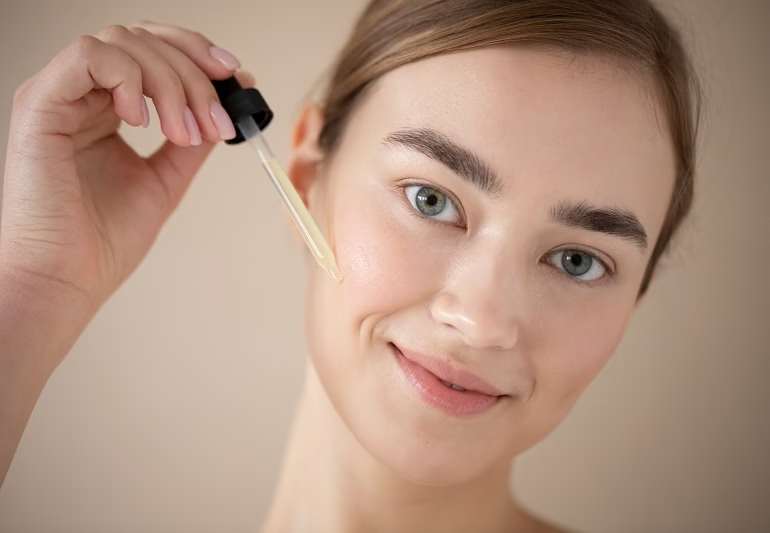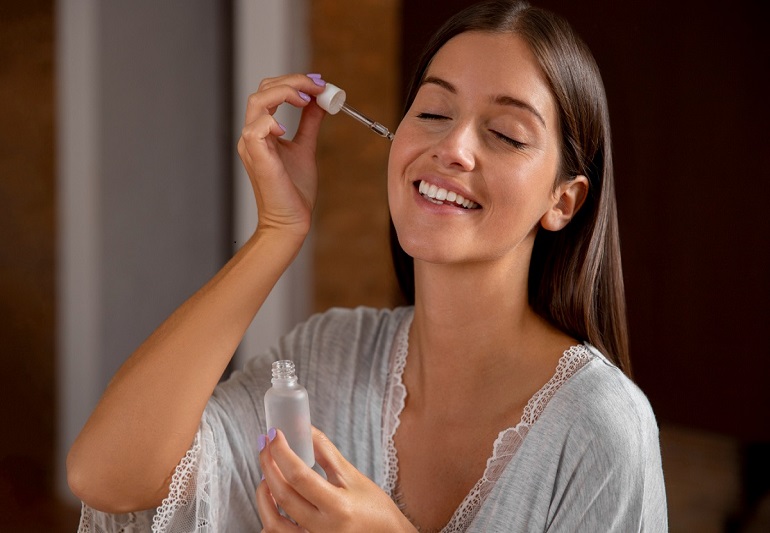Did you know that our skin loses approximately 1% of its collagen every year after age 20?Shocking right? Even worse? A whopping 80% of premature aging comes from the environment, not your genes. No wonder we’re all searching for powerful skincare solutions!
Enter vitamin C serum – the golden elixir dermatologists can’t stop talking about.
Once considered optional, this powerhouse ingredient has become a skincare essential. But what’s the big deal? Can it really work miracles on your skin?
I’ve got you covered. This guide breaks down everything about vitamin C serum benefits- from science to shopping tips.
Ready to discover why this potent ingredient deserves a spot in your daily routine? Let’s dive in and unlock your skin’s full potential!
Table of Contents
Understanding Vitamin C for Skin
The Science Made Simple
Vitamin C (ascorbic acid) is a water-soluble nutrient that your skin naturally contains. It helps create collagen—the protein that keeps your skin firm and youthful. As we age and face environmental stressors like pollution and UV rays, our natural vitamin C levels drop, which is why topical application makes such a difference.
Think of vitamin C as both a shield and a repair crew for your skin. It protects against daily damage while simultaneously fixing existing issues.
Which Form Works Best?
You’ll see different forms of vitamin C on product labels:
- L-ascorbic acid: The pure form—most potent but can irritate sensitive skin
- Sodium ascorbyl phosphate: Gentler and suitable for acne-prone skin
- Magnesium ascorbyl phosphate: Stable and hydrating
- Tetrahexyldecyl ascorbate: Oil-soluble with excellent penetration
- Ethyl ascorbic acid: Good balance of stability and effectiveness
While eating vitamin C-rich foods benefits your overall health, applying it directly to your skin delivers a much higher concentration exactly where you need it.
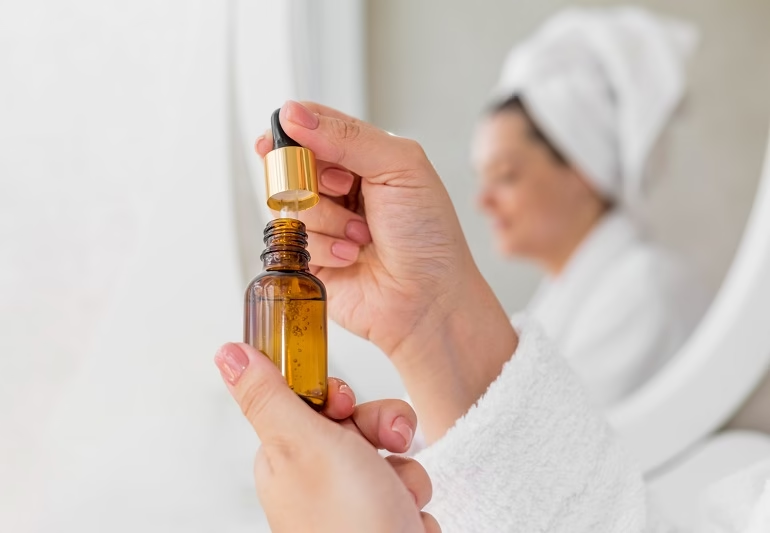
The Real Vitamin C Serum Benefits
Powerful Protection Against Aging
Vitamin C neutralizes free radicals—unstable molecules from sun exposure and pollution that damage skin cells and accelerate aging. It works like a bodyguard, intercepting these threats before they harm your skin.
What’s impressive is that this protection lasts up to 72 hours after application, even though you’ll want to apply daily for the best results.
Builds Collagen for Firmer Skin
When it comes to fighting wrinkles, vitamin C is a standout performer. It doesn’t just preserve existing collagen—it actively triggers your skin to make more.
Research shows that women using 10% vitamin C serum for 12 weeks saw a 33% improvement in wrinkle depth and noticeable firmness. Results you can see in the mirror.
Fades Dark Spots and Evens Skin Tone
Are you struggling with dark spots, sun damage, or post-acne marks? Vitamin C inhibits melanin production in these specific areas without affecting your normal skin tone.
You’ll likely notice overall brightening within 2-4 weeks, with more significant fading of stubborn dark spots after 8-12 weeks of daily use.
Helps Heal Blemishes and Reduce Redness
Vitamin C has impressive anti-inflammatory properties that can calm irritated skin. This makes it beneficial for acne, rosacea, and even post-procedure recovery.
It speeds healing by reducing inflammation and supporting collagen formation, which means those red marks from blemishes fade faster.
Boosts Your Sun Protection
While not replacing sunscreen, vitamin C significantly enhances your protection against UV damage. Research shows that combining vitamin C with sunscreen provides better protection against photoaging than sunscreen alone.
It neutralises the free radicals that your sunscreen can’t completely prevent, creating a more comprehensive defense system.
Improves Overall Skin Quality
Beyond addressing specific concerns, regular vitamin C use improves your skin’s overall appearance—refining texture, minimizing pores, and creating a natural glow that makes your skin look healthy and well-rested.
Choosing the Right Vitamin C Serum
Concentration: Finding Your Sweet Spot
Vitamin C serums typically range from 5% to 20+% concentration:
- 5-10%: Perfect for beginners or sensitive skin
- 10-15%: The sweet spot for most people
- 15-20%: For experienced users targeting significant concerns
- 20%+: Professional strength, though research shows diminishing returns beyond 20%
Higher isn’t always better—finding the right balance for your skin type is key.
Stability: Keeping It Potent
Vitamin C’s weakness is its instability. When exposed to air, light, or heat, it oxidizes—turning yellow or brown and losing effectiveness.
Look for these stability-enhancing features:
- Dark or opaque packaging
- Airless pump dispensers
- Added stabilizers like ferulic acid and vitamin E
- Water-free or microencapsulated formulations
A well-formulated vitamin C product should stay clear (or its original colour) throughout its use period.
Supporting Cast: Ingredients That Enhance Benefits
The best vitamin C formulations include complementary ingredients:
- Vitamin E: Regenerates vitamin C, extending its antioxidant activity
- Ferulic acid: Stabilizes the formula and boosts antioxidant protection by 8x
- Hyaluronic acid: Adds hydration
- Peptides: Support collagen-building effects
These partners dramatically enhance vitamin C’s performance on your skin.
Value vs. Price: What You’re Paying For
While there are good options at every price point, understanding the differences helps:
- Budget options ($15-30): Often use vitamin C derivatives and more straightforward packaging
- Mid-range options ($30-70): Typically offer stable L-ascorbic acid with supporting antioxidants
- Luxury options ($70+): May include patented delivery systems and additional actives
The best value isn’t necessarily the cheapest but the one that delivers results for your specific concerns.
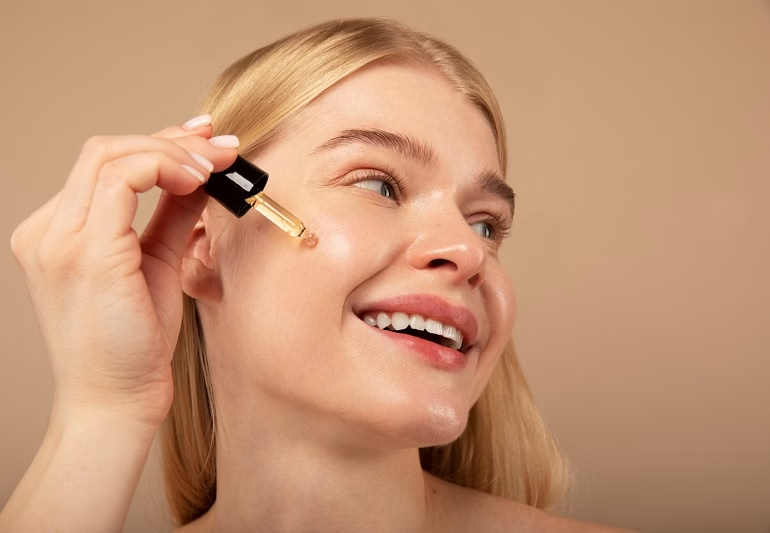
Using Vitamin C Serum Effectively
Morning or Night? Finding Your Routine
Morning application maximizes vitamin C’s protective benefits, creating an antioxidant shield under sunscreen.
Evening application supports your skin’s natural repair processes during sleep and might be preferable if you experience sensitivity.
The bottom line: consistency matters more than timing. Choose when you’ll most reliably use it.
Application Made Easy
For best results:
- Apply to clean skin, after toner if you use one
- Use 3-4 drops for your entire face
- Gently press into the skin rather than rubbing
- Wait 30-60 seconds before applying other products
- Follow with moisturizer and sunscreen (for morning routines)
Don’t forget your neck and the back of your hands—they show aging quickly!
Matching Frequency to Your Skin Type
How often should you apply?
- Normal/combination skin: Daily
- Oily/resilient skin: Can build up to twice daily
- Dry/mature skin: Daily, paired with hydrating ingredients
- Sensitive skin: Start with 2-3 times weekly, gradually increasing
Slight tingling upon application is normal, but persistent irritation means you should reduce frequency or concentration.
Playing Well With Others: Compatible Products
Creates an effective routine by understanding what works with vitamin C:
Works well with:
- Hyaluronic acid
- Vitamin E
- Peptides
- Sunscreen
- Niacinamide (in separate products)
Use separately from:
- Retinoids (used at different times of day)
- AHAs/BHAs (space out applications)
- Copper peptides
Troubleshooting Common Issues
Is It Still Good? Spotting Oxidation
An oxidized vitamin C serum isn’t just ineffective; it could harm your skin. Replace your serum if you notice:
- Colour change from clear/white to yellow, orange, or brown
- Cloudy appearance
- Unusual smell
- Changed texture
Keep It Fresh: Storage Tips
Extend your serum’s life with proper storage:
- Keep in a cool, dark place (refrigeration works well)
- Close tightly after each use
- Keep away from bathroom humidity and heat
- Follow expiration guidelines
Sensitivity Solutions
If you experience irritation:
- Start with lower concentrations
- Try gentler derivatives
- Apply to completely dry skin
- Consider buffering with moisturizer
- Build frequency gradually
Breakout or Purge? Telling the Difference
Initial breakouts might be:
Purging:
- Appears in usual breakout areas
- Resolves within 2-4 weeks
- Results in clearer skin afterwards
True reaction:
- Appears in unusual areas
- Persists beyond 4 weeks
- Includes itching or significant irritation
Best Picks for Different Skin Needs
For Sensitive Skin
Look for:
- Magnesium ascorbyl phosphate or sodium ascorbyl phosphate
- Minimal ingredients with no fragrance
- Soothing additions like aloe or chamomile
- Lower concentrations (5-8%)
For Oily/Acne-Prone Skin
Seek out:
- Water-based, lightweight serums
- Sodium ascorbyl phosphate (has anti-acne benefits)
- Oil-free formulations
- Products with salicylic acid or niacinamide
For Dry Skin
Prioritize:
- Formulas with hyaluronic acid, glycerin, or squalane
- An emulsion or light cream textures
- Tetrahexyldecyl ascorbate (oil-soluble form)
- Products containing vitamin E
For Mature Skin
Focus on:
- Higher concentrations (15-20%)
- Formulations combining vitamin C with peptides
- Multiple antioxidants for enhanced protection
- Added hydrating ingredients
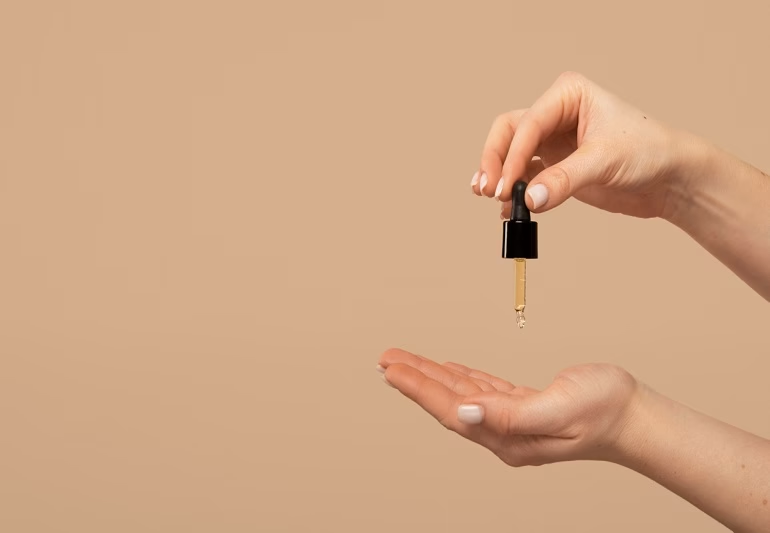
Expert Tips for Vitamin C Serum Benefits
Power Couples: Winning Combinations
Morning routine: Vitamin C → Hyaluronic Acid → Moisturizer → Sunscreen Evening alternatives: Retinol on alternate nights from vitamin C
The vitamin C + sunscreen combination deserves special mention— they provide significantly better protection than alone.
Beyond Products: Lifestyle Factors
Maximize your results with:
- Staying well hydrated
- Getting adequate sleep when skin repair happens
- Managing stress, which depletes antioxidants
- Limiting alcohol and avoiding smoking
Common Mistakes to Avoid
Don’t sabotage your results by:
- Using oxidized products
- Applying too much (more isn’t better)
- Mixing directly with incompatible ingredients
- Expecting overnight miracles
- Neglecting sunscreen
- Storing improperly
- Switching products too frequently
Conclusion
Vitamin C serum earns its superstar status through scientifically proven benefits: powerful protection, collagen stimulation, brightening effects, and overall skin enhancement. These aren’t just marketing claims—they’re actual results you can see.
Success comes from selecting the proper formulation for your skin, applying it correctly, and being patient. The best outcomes develop with consistent, long-term use rather than overnight transformation.
Whether just starting your skincare journey or optimizing an established routine, vitamin C offers something valuable for nearly everyone. It’s that rare ingredient that prevents future damage and repairs existing concerns.
Your future self will thank you for investing in this golden elixir of skin health!
Frequently Asked Questions
1. How quickly will I see results from vitamin C serum?
You’ll likely notice enhanced glow within 1-2 weeks, improved texture within 4-6 weeks, and significant changes like reduced dark spots and fine lines after 8-12 weeks of daily use. Consistency is key.
2. Can I use vitamin C serum if I have sensitive skin?
Yes, but choose gentle formulations with lower concentrations (5-10%), vitamin C derivatives rather than pure L-ascorbic acid, and soothing ingredients. Start with application every other day and gradually increase as your skin adjusts.
3. How can I tell if my vitamin C serum has gone bad?
Look for colour changes (yellow/brown discolouration), unusual smell, or altered texture. If properly stored, most serums remain effective for 3-6 months after opening. Always discard oxidized products, as they can actually cause damage rather than benefits.
4. Can vitamin C serum replace my sunscreen?
No. While vitamin C enhances protection against UV damage, it cannot replace sunscreen. They work as partners: vitamin C neutralizes free radicals that slip past sunscreen, while sunscreen blocks the direct UV damage. Always use both for complete protection.
5. Is more expensive vitamin C serum always better?
Not necessarily. While premium products often feature more stable formulations, additional active ingredients, or enhanced delivery systems, excellent options are available at every price point. Focus on evidence-backed formulations that include stabilizers and proper packaging rather than luxury branding or marketing claims.
6. Can I prepare vitamin C serum by myself at home?
The DIY serum is unstable and might also cause irritation or damage to the skin. It will be better for the person to have a professionally formulated serum.
